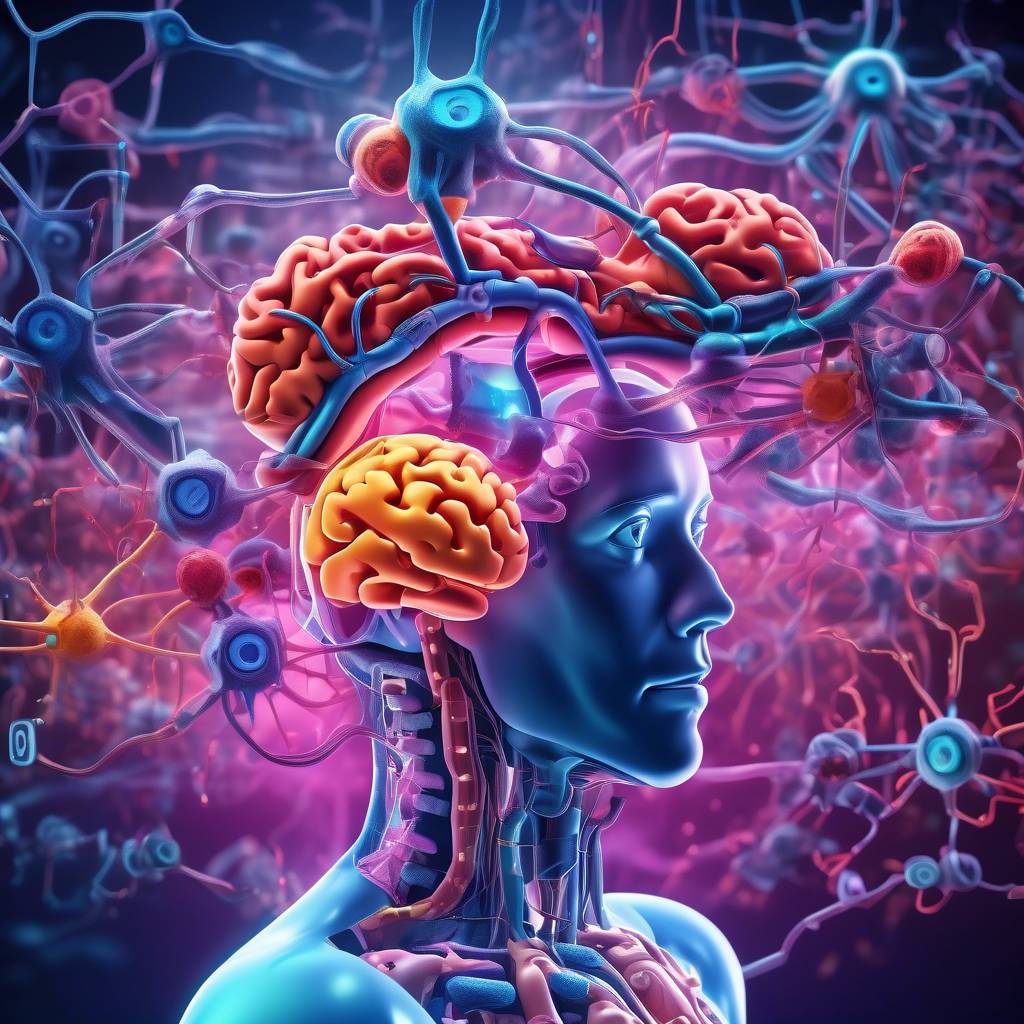The gut microbiome has been found to be disrupted in individuals with Alzheimer’s disease, leading researchers from Ohio to believe that this could be a potential target for treatment. Specifically, they are looking into receptors present in both the gut and the brain as key players in the gut-brain axis. By using existing artificial intelligence (AI) tools, researchers were able to predict how metabolites created in the gut by bacteria bind with receptors found in both the gut and the brain. This information could shed light on the role of the microbiome in Alzheimer’s disease, offering a new avenue for research and potential treatment options.
The study focused on predicting which metabolites from bacteria in the gut would bind to specific receptors, and how these interactions could influence Alzheimer’s disease. By evaluating the shapes of over 1 million potential pairs of metabolites and receptors, researchers were able to identify which pairs were likely to bind together. This information allowed them to determine the biological pathways affected by these interactions and the functions of certain receptors. The presence of certain metabolites in the gut is an indicator of the presence of specific bacteria, and these metabolites are created through the breakdown of food in the gut.
Researchers found that metabolites like agmatine and phenethylamine, produced by specific gut bacteria, were able to reduce tau protein levels in lab-created neurons from individuals with Alzheimer’s disease. Tau protein accumulation is associated with the development of Alzheimer’s disease, so these findings show promise for potential treatments. The study findings suggest that by improving gut health and preventing harmful interactions between metabolites and receptors, the risk of Alzheimer’s disease could potentially be reduced. This new approach could provide a novel target for drug development in Alzheimer’s disease and lead to more effective treatments.
The immune system’s role in Alzheimer’s disease is not well understood, but research has linked inflammation to an increased risk of the disease. The gut microbiome plays a vital role in immune function and its impact on brain health. The gut-brain axis serves as a line of communication where chemicals created in the gut can affect brain health by contributing to inflammation or other processes. By improving gut health and targeting the gut-brain axis, researchers hope to develop new treatments for Alzheimer’s disease that can be achieved by influencing the levels of tau protein in the brain.
The findings from this study offer potential novel approaches for Alzheimer’s disease treatment by targeting the gut-brain axis and influencing tau protein levels in the brain. By using machine learning tools to predict how metabolites bind with receptors in the gut and brain, researchers have identified potential interactions that could impact Alzheimer’s disease progression. The next steps involve further preclinical and clinical studies to test the efficacy and safety of these treatments in animal and human samples. By sharing their findings with the research community, the study authors hope to advance Alzheimer’s disease research and potentially open up new avenues for therapeutic interventions.
The use of artificial intelligence (AI) tools in predicting metabolite-receptor interactions in the gut and brain offers a new perspective on the role of the microbiome in Alzheimer’s disease. By identifying specific metabolites and receptors involved in Alzheimer’s disease pathology, researchers are able to pinpoint potential targets for treatment. The study findings suggest that by manipulating these interactions, it may be possible to influence tau protein levels in the brain and prevent or treat Alzheimer’s disease. Further research is needed to validate these findings and explore the potential therapeutic applications of targeting the gut-brain axis in Alzheimer’s disease.









